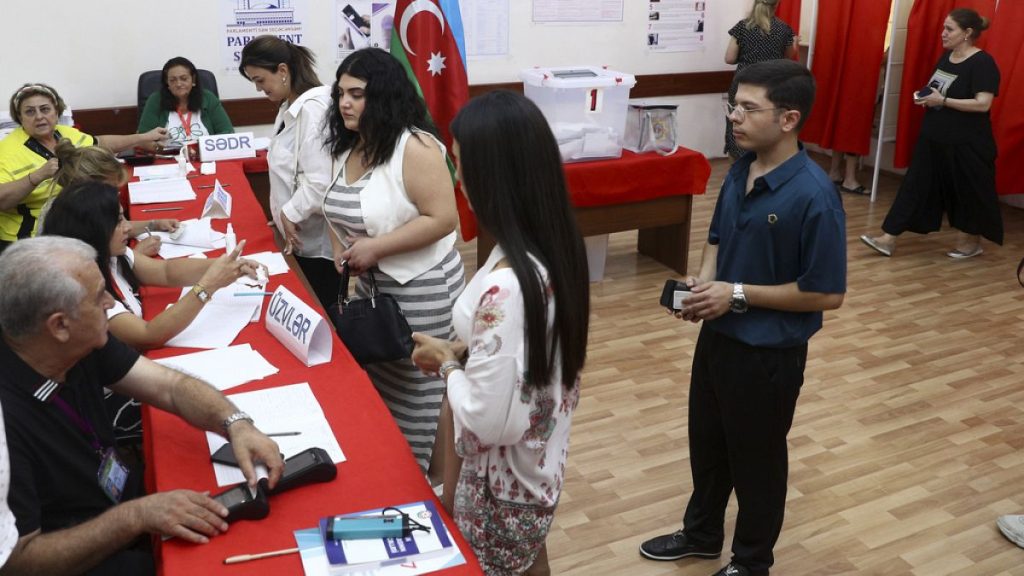A snap parliamentary election took place in Azerbaijan, with 25 political parties and 990 candidates competing for 125 positions in parliament. President Ilham Aliyev, who has been in power since taking over from his father in 2003, cast his ballot along with his family. Previous elections in Azerbaijan have been criticized for not being free or fair, and the outcome of this election is not expected to significantly change the composition of the parliament dominated by Aliyev’s New Azerbaijan party. Voters expressed their hopes for a better future and progress in the country, with the ruling party currently holding the majority of seats.
The election in Azerbaijan took place amid regional challenges and ongoing geopolitical tensions, with international observers closely monitoring the process. The Musavat party, a major opposition group, put forth 34 candidates but only 25 were registered. The Republican Alternative opposition party also ran 12 candidates. The election was called two months earlier than required by the constitution, coinciding with the hosting of the United Nations climate talks in Baku. The vote comes nearly a year after Azerbaijani forces reclaimed the Karabakh region in a military operation, displacing its ethnic Armenian residents.
In the lead-up to the election, voters expressed their desire for the development and growth of Azerbaijan, particularly for better conditions for the younger generation. More than 6.4 million people registered to vote, with 200 international observers invited to monitor the election process. The Organisation for Security and Cooperation in Europe is among the groups conducting observer missions and is scheduled to release its preliminary assessment of the election. The election is seen as an opportunity for the people of Azerbaijan to shape the direction of their country for the next five years.
The ruling New Azerbaijan party currently holds the majority of seats in the parliament, with smaller pro-government parties and independents also represented. President Ilham Aliyev has led the country in a similar style to his father before him, with a heavy-handed approach to dissent and governance. The election is not expected to bring significant changes to the political landscape of the country. Despite past criticisms of election practices in Azerbaijan, voters saw it as their duty to participate in the democratic process and vote for stability and prosperity in their lives.
The election in Azerbaijan is a significant event for the country, as it will determine the leadership and direction of the government for the next five years. President Ilham Aliyev cast his ballot along with other voters in Baku, expressing hopes for a better future and progress in the nation. International observers are closely monitoring the election process to ensure its fairness and transparency. The outcome of the election will have implications for the country’s future development and its place on the global stage amid ongoing geopolitical tensions in the region.


